Richmond Fontaine - Interview
by John Clarkson
published: 28 / 7 / 2009
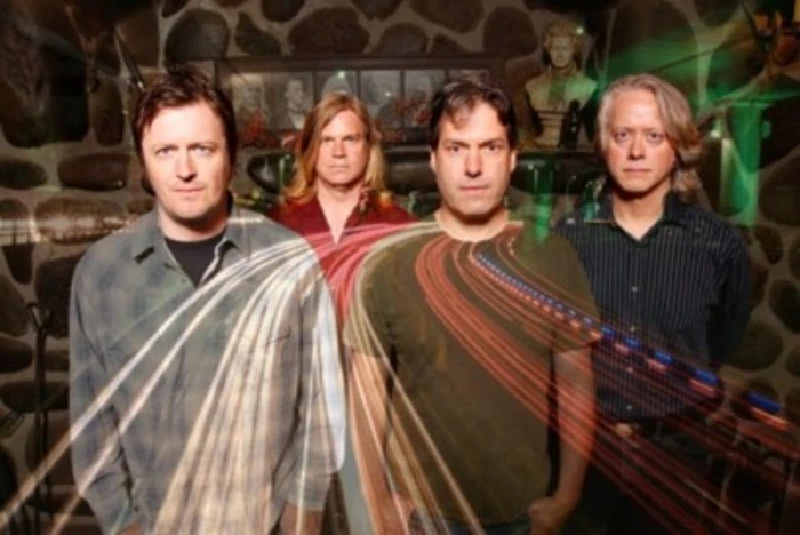
intro
The singer and songwriter with acclaimed group Richmond Fontaine, Willy Vlautin, speaks to John Clarkson in what is our fifth interview with them about the difficult personal events that inspired the writing of his band's eighth album, We Used To Think The Freeway Sounded Like A River’
In 2007 two days before he was due to return home at the end of a year long tour to promote his band Richmond Fontaine’s seventh studio album, ‘Thirteen Cities’, Willy Vlautin’s mother died unexpectedly. Vlautin, who has been the singer-songwriter in Richmond Fontaine since 1994 and who has also published two acclaimed novels, ‘The Motel Life’ (2006) and ‘Northline’ (2008), retreated grieving to his rural home outside Portland, Oregon, and began writing songs about family, relationships and loss. An already traumatic year, however, turned worse when Vlautin was thrown off his horse and broke his arm badly. Only able to return to writing after some months, Vlautin eventually re-emerged with a new novel, ’Lean On Pete’, and the songs for Richmond Fontaine’s next album, ‘We Used To Think The Freeway Sounded Like A River’. ‘We Used To Think...’ was recorded in Portland with the band’s regular producer, JD Foster. The line-up of the band remains unchanged since the group’s 2004 breakthrough album, ‘Post to Wire’, and consists, as well as Vlautin (vocals, guitar) of Dave Harding (bass), Sean Oldham (drums, vocals) and Dan Eccles (guitars). Other musicians involved in the new recording include part-time Richmond Fontaine member Paul Brainard (pedal steel, trumpet), Oldham’s brother Collin (cello, cellomobo) and special guest Ralph Huntley (piano). The fourteen track album moves through a variety of styles. There are folk songs, discordant punk numbers, lounge and jazz tracks, and several of the country tunes in which Richmond Fontaine found their early roots when Vlautin moved from his home city of Reno to Portland, and the band was formed after he met Harding at a race track. The overall sound of the album is melancholic and its subject matter ,while like all of Richmond Fontaine’s records never without hope often bleak. The opening title track, a deceptively breezy lounge number, tells of two kids creating an imaginary Eden in their run-down neighbourhood. Their fragile sense of optimism is, however, destroyed when their house is burgled and vandalised. In ‘The Boyfriends’, in which Brainard’s mournful brass is pushed to the fore, the protagonist has memories of his own painful childhood re-sparked when his new girlfriend’s child catches them having sex. The hero of stark folk song, ‘The Pull’, takes up boxing as a way out of alcoholism, but has to quit after detaching his retina, while the desperate main character of the discordant, metallic ‘43’ is forced into growing dope as a way out of debt. Two lovers on the acoustic ‘Ruby and Lou’ run away together to escape their suffocating families, but their happiness and love are both threatened when a homeless boy they have let use their hotel room shoots himself with a gun they have left there. In what is his fifth interview with Pennyblackmusic, Willy Vlautin spoke to us ‘We Used To Think The Freeway Sounded Like A River’ and its stories. He began by talking about the difficult events that inspired its making. PB: There has been a long gap between this album and ‘Thirteen Cities’. Was it an enforced sabbatical because of your mother’s death and your broken arm or, as you’re a band that has always spent time apart from one another, something that you would have done anyway? WV: ‘Thirteen Cities’ was the end of a really long five years of touring and working. My Mom died suddenly a couple of days before the tour ended. Then when we got home Dave got married and his wife became pregnant and so we decided to take a break. I wanted to write another album like ‘Thirteen Cities’, but my mind switched after I came home. Everybody, of course, loses their mother, but it still completely wrecks your head. My mother was in a lot of ways the person I was most close to, and, as we had had a kind of rough life together sometimes when I was growing up, it made it even sadder. A lot of the songs on the album are a reflection on that and are me trying to figure out why I am such a wreck when it comes to certain things. On top of that when my horse bucked me off I broke my arm pretty bad. I was laid up from playing the guitar in any real way. They had to put a pleat and pins in it. I was just watching TV and taking painkillers for a long time. I sat there and I couldn’t move my fingers for I guess almost a month. Then when I could I move my thumb and my pointer finger, even though I had this big cast on it, I could kind of pluck a guitar and I just decided then that I love the guitar, not as a musician - I am a mediocre guitar player anyway –but as a friend. I was like, “Oh, my friend is back”. At that point, I said to myself, “Okay. Who cares about being in a band or making music or being in a bar? You have your friend and if you can play with two fingers you have got it made because you can still sit around the house and pluck on the guitar”. I was happy itself and from now on I think that I will always think of the guitar as a lucky thing that I do. PB: There are more instrumental tracks on this album than any other Richmond Fontaine album. If you include ‘Watch Out’, which is 99% instrumental, you have got four instrumental songs on it. Was that just a reflection on you rediscovering the guitar? WV: Actually,no. I have always been a fan of instrumentals. I would put a lot more instrumentals on all of our records if I could (Laughs). When I hear a band with a record that has instrumentals that fit with it, it makes it more of a package deal for me and more complete. It is like it is a piece of work rather than just a series of songs. I also honestly think that it gives the listener a break from my voice and the world of my stories. Often times my stories might seem too bleak for people and it might give them a breather. Dave tends to like songs more, while I am the biggest champion of instrumentals in the band and I have to fight for them (Laughs). There is always a fight about which songs make the final record. It is a good fight, but I champion the instrumentals always. PB: Both this album’s predecessors, ‘The Fitzgerald’ and ‘Thirteen Cities’, are very dark albums. They did, however, finish on a note of optimism. This one , while often again very black, seems to be slightly lighter in that, while bad things happen to a lot of your characters, on songs like the title track and ‘Ruby and Lou’, love seems to be in many ways a saving factor. Would you agree? WV: Yeah, I think so. I am glad that you said that. Generally I always tend to write on the edge between hope and disillusionment. Sometimes the pessimist in me comes out and the songs lay on the side of disillusionment. Sometimes I have a bad trouble personally and those songs reflect that edge because it is an edge that I am trying to figure out in my personal life. On ‘The Pull’, for example, off this album, I had to make the guy win ten fights before he is forced to quit boxing. At first I wasn’t going to, but I am changing. I am lightening up a hair at least within the world of the songs (Laughs). I had to make him win at least ten fights because he needed that. I am more hopeful on this one just because I felt that I needed to be as well. When I started writing as a kid, I soon realised that it would be the only time in the world that I could control anything. I control what I like to do when I get out bed and if I try hard that day or not, but I can’t control anything else and in my stories it has brought me great peace to know that I can control them and the characters. The sad songs have always brought me the most comfort and, when I found comfort in these characters who were really struggling, I was also really struggling. PB: On the title song on this album and ‘The Boyfriends’, the events in them are really important and life-changing to their protagonists, but they might have less significance to others in the same situation. That is something Raymond Carver used to do that also in his writing, tell these stories about situations which were important to that person for whatever reason, but in which others might not react so badly. That seems to be something that you are doing more and more of in your writing. Is that something that you are conscious of? WV: No. I have never really thought of it in that way (Laughs). Both of those songs are ilargely autobiographical. I did live by a freeway with this girl, and we decided at night that it sounded like the ocean or a river. We said to each other, “Hey, let’s think of it that way and not think of it as a freeway and then we’ll always call it a river”. We lived in a part of town in Portland called Felony Flats because felons, ex-cons live there and felonies happened there all the time. We left the house to go to work for one day and when we came back at the end of the day anything worth anything was gone, and a lot of other stuff was broken. All of a sudden the bad neighbourhood wasn’t fun anymore. The one thing about a rough neighbourhood is that it has more drama in it. It is more romantic, but the romance goes out of it the second the reality hits you and the reality of the freeway all came back. It was like, “Man, we live on a freeway. We don’t have any money and all the freeway is people and exhaust and being broke”. You’re broke if you live near a freeway. I like the imagery of that song. I used to drink at this bar in Reno with this friend of mine and it was an old hotel which had fallen on hard times, but the bar had a pool and in the pool there were shopping carts in it and a couple of dresses from some of the rooms. We would sit out there and try to act like we were sitting by the pool. It was romantic. That is the thing. You can make bad situations really fun and tolerable unless the reality hits you in the side of the head a little too hard. It is the way that I have often gone by in my life. I can make happy in a bad situation and live in my head where it is not bad. PB: Why did you give the album that title, ‘We Used To Think the Freeway Sounded Like A River’? Was it because of that imagery and concept? You said in your last interview with us that much to the rest of the band’s dismay you like really long titles. Was that a reason as well? WV: That was part of it (Laughs). To me that title summed up the album perfectly. Not just this song, but other songs on the album as well are about trying to put a spin on a bad situation. It is one of the main themes of the record. There is romance in the title, but on a personal level it is also kind of heartbreaking. I do like long titles as well. To me it feels like the record, and so I picked it and fought for it. On this record I wanted to write straight love songs. I like that guy, Richard Hawley, the English songwriter. I was listening to him and I was like, “I want to be like him. I don’t want to be a fucking dark fuck-up anymore”. I wanted to write love songs because I was trying to figure out that side of me. I think it was because of my Mom dying. I’ve got this shed I write in and every time I go in there I come out with ‘The Pull’ or’43’ or ‘Ruby Lou’. They are I guess love songs, but they are just not normal love songs. I loved that Richard Hawley song, ‘Coles Corner’, and I would listen to that and then I would go, “Okay, I am going to try and write a song like that”. Then I would come out with something that is completely weird and most people wouldn’t even consider to be a love song, but I just thought that it was indicative of where my head was at the time I wrote them. PB: You said that ‘The Boyfriends’ was autobiographical as well. WV: ‘The Boyfriends’ was basically a true story. I was trying basically to figure out-I am 41-my Mom’s boyfriends when I was six and seven years old. I can’t remember any of the guys I went to school with and any of my teachers or any of that shit, but I can remember what the guy looked like who was dating my Mom when I was ten and why it would it piss me off even though nothing was done wrong and she was a woman that worked all the time and was just trying to find a new guy to hang out with. With that song I was trying to remember and figure out why I would get really pissed off at that guys I didn’t even know and how I really desperately don’t want to be one of those guys ever. That is where that song came from. PB: ‘Did you actually know someone who grows cannabis plants like the protagonist in ‘43’ to pay the rent? WV: Yeah. I know guys like that. That one is about how a guy gets in over his head. I am getting to that age where I am beginning to see guys who are pretty hard working, decent guys who get in over their head. They want, like the character in ‘43’, to take care of their mother so that they can put her in a decent home so that she doesn’t have to live in a bad way if she has health problems. You might, like him, have had a falling out with your wife and so you have child support and alimony and you still make the same money that you made ten years ago, so you start growing weed plants just to make ends meet. The heart of that song is the anxiety of not being able to afford the things that you need to take care of the people that you love. It eats at the character in ‘43’ day and night and so he decides to grow weed as a way out of debt. In the US you can go from lower class to middle class if you do that and you can make a ton of money and make your life a lot easier, but they are tightening up on things so much that you can go to prison if you get caught or at least spend a lot of money staying out of prison. PB: What about ‘Ruby and Lou’? Was there a kid who killed himself as in that song? Was that based on reality? WV: No, both Ruby and Lou come from these really dysfunctional, rough homes or homes where they expect a lot out of them. They think that by being in love and being together the realities of the world won’t hit them. They’re still at that stage where they think they can go to a different place and find a place where reality isn’t going to get them. Even though they are in love they try to be kind to people and try to be kind to this kid they find. Maybe the kid needs to take a shower or sleep without living on the streets, but the kid looks through Lou’s things and finds a gun and decides to kill himself. Ruby and Lou are never going to escape the darkness of the world. The idea behind that song is that, because they are young they keep trying to move to a place that is not going to have those things that haunt everybody. The sad thing is that by the time they probably find it they’ll probably have split up anyway. Like Ruby and Lou I have a huge tendency to think that if I move somewhere else I’ll be in a better situation. It is like if I get a different job I’ll be a better guy, or if I live in a different house I’ll be a better guy this time or maybe I’ll try harder if I have a nice car or whatever (Laughs). It is an all too common human condition I guess (Laughs). PB: Are the songs on this album primarily a way of you sorting out your own take on situations? WV: Yeah, I have always written to get by and to hopefully make my life calmer. I didn’t think when I wrote about ‘The Boyfriends’ or ‘We Used to Think the Freeway...’ of them as personal songs. I was just trying to figure something out. It was not until I started talking about them that it was like, “Holy shit! ‘The Boyfriends’ is a true story and people are going to ask me about”. I never think about that when I am writing them and now I am like, “Christ! Why did I put that song on the record?” but really with my songs and my books I write them so that I can look at something that disturbs me and then forget it and maybe get some kind of peace from it. When I was a kid, I grew up with a guy that had a semi-horrible home life and he would tell you about it and he would admit things that you or I would never admit. We would be ashamed, but he would just tell you flat out, whatever kind of embarrassing situation. “Yeah, my Dad hasn’t left the room for a week” or “I eat canned spaghetti in front of the TV five nights a week”, which no kid would usually admit to, but it gave him strength to say that. He was saying basically, “I am not going to be ashamed about this. I am just going to admit it and then if you don’t like me because of it that is okay and then if you do like me that is okay too”. I think at an early stage I started to write like that, because I figured if I wrote about something that was upsetting you that it was like looking inside a box. If you opened it up there was a chance that what was inside could kill you, but there was a chance that it could disappear and that you would figure it out. At an early age I took advice from that kid, which was, “Okay, man. Admit it. Then you can move on.” PB: Each of your albums before ‘Thirteen Cities’ had a very defined sound. ‘Post to Wire’ was a country album. ‘The Fitzgerald’ was a stark folk record, but ‘Thirteen Cities’, however, was more diverse. It had elements of blues, ambience, abstract jazz, piano ballads and rock. ‘We Used to Think the Freeway...’ is similarly eclectic. Is that the direction you see yourself as going in from now on? WV: Yeah, what I really like in music as a fan are songs that different and yet that all fit together. What we want to do is make songs that are a little different from the last one, but which make you comfortable and leave you inside the world of the record. Our fickle is to create a world of a record that makes sense. If we do write a piano ballad, we want it to fit with the punk tune or the angry song. Personally my biggest goal is not to bore you and to have a ride. I am all about the ride of the record these days, the up and down. PB: You decided to stay at home to make this record In Portland, rather going off to record it as you did with ‘Thirteen Cities’ in Tucson. WV: Yeah, Dave has a baby now. That was one reason. I was also really trying to figure my own situation out on this record, whereas on ‘Thirteen Cities’ I was obsessed with the West as a concept and the problems of the American West and the modernisation of the West versus the romanticism that people have with it. As that was that album’s main theme. It made sense to go off and record it somewhere else, while this record was more personal in nature and I wanted it to stay where I lived to record it. PB : Both ‘The Motel Life’ and ‘Northline’ have been optioned for films. Are those definitely going to get made? WV: I don’t know. The movie world is really much bigger than I understand. The one that seems closest to getting made is ‘Northline’, which has been bought by this woman called Courtney Hunt. She made the film, ‘Frozen River’. It is a great movie. I think that she is the right person to get it made. I just really trust her. I can’t say enough good things about her. She is a writer/director, and I am hoping that she can get the money together to get it made. When I met her, I would have given her the book and that is the way I have decided to deal with the movies. I have just to trust them and then make the best decision I can and then let it go because I don’t want to be a part of the movie world except to go and see a movie. I hope that she makes it because she is the right person to do it and it would mean a lot to me to have it in good hands. I don’t know what is going to happen with ‘The Motel Life’. I haven’t heard anything for a while. PB: You have also got a new novel, ‘Lean On Pete’, coming out in February of next year. WV: It is a story about a kid that lives at a horse track in Portland. He ends up in this friendship with this failed race horse called Lean On Pete. The kid is trying to navigate his way through his life and he gets thrown in at the deep end of low level horse racing. He puts a heart and a personality on Pete. Race horses aren’t supposed to have personalities. They are supposed to run fast and that’s why they are bred and that’s why they are born, but this poor kid sees a person in Pete and that proves to be a mistake and it ends in hardship for both of them. PB: You apparently have various other unpublished novels sitting in a drawer. Could you ever see those as coming out now? WV: No, fuck, no. There is one novel though called ‘The Hurleys’. It is about Earl Hurley from‘The Motel Life’, who is this car sales guy, and his grandson. They go on this three day bender, and each guy must drink a hundred and twenty beers, which is just ridiculous, but I hope someday to put that out, whether I have got down to the local copy story and print it out myself. I like that story because of its madness and because it is also very romantic. The grandfather and grandson are the best of pals. They go drinking together. The grandfather gives like the worst and the best advice, but he gives advice all day long. As crazy as it sounds, I do write fantasy as well. With ‘The Hurleys’, I just wanted a father figure in my life at the time and so I wrote about Earl Hurley. I lived with that guy in my mind and I still do at times and so I like ‘The Hurleys’ because of that. I am the grandson and he is my grandfather and he gambles and we drink and sell cars and we have a compound out in the desert where we sell cars and live with the mechanic. If I could live in any world with any kind of money, I would live with Earl Hurley in a used car lot. That would the biggest dream of dreams for me. PB: Last question! You’re also going to be touring Europe in September, aren’t you? WV: We’re going to be doing two tours. Paul Brainard is not coming with us this round. He is going to be touring with us next year and we’re touring with Ralph Huntley, who is this really great piano player and like the coolest musician in town. We are going to come back next year with Paul. This tour will be geared more towards the new record and then the new tour will be a bigger back catalogue kind of tour. PB : Thank you.
Band Links:-
http://richmondfontaine.com/https://www.facebook.com/Richmond-Fontaine-100281195567/
https://twitter.com/rffontaine
Have a Listen:-
Picture Gallery:-
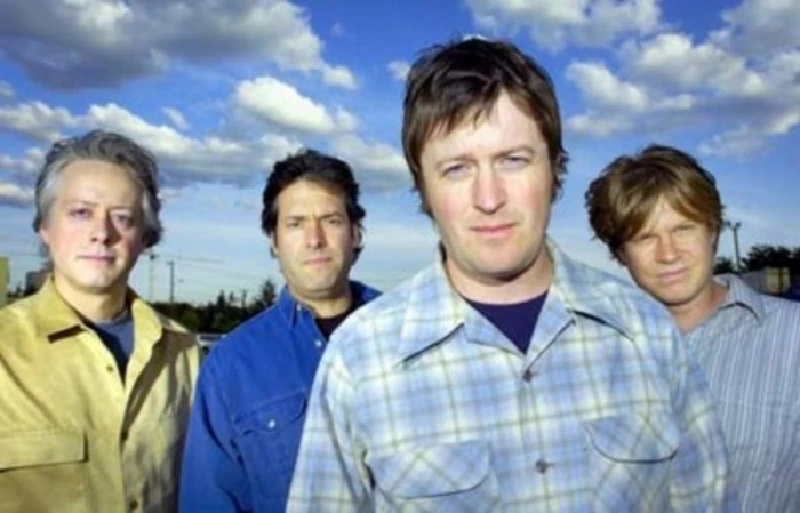
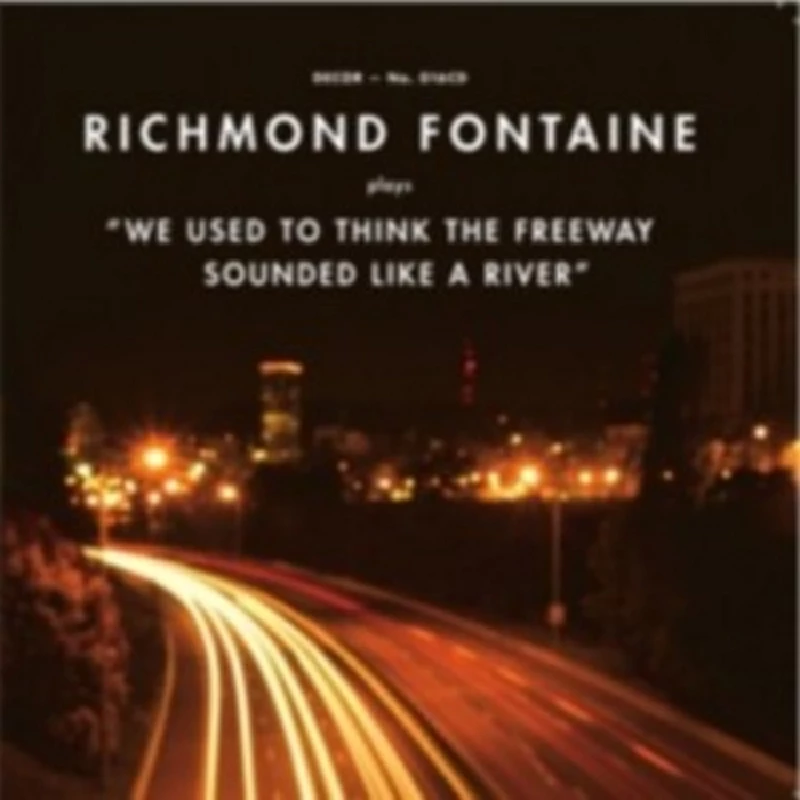
interviews |
|
Interview (2016) |
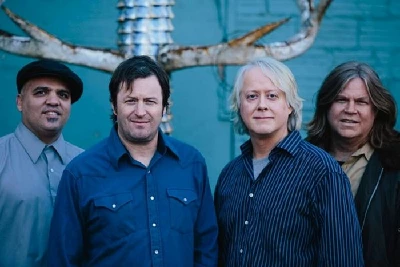
|
| John Clarkson speaks to Willy Vlautin, the vocalist and songwriter with acclaimed Portland, Oregon-based Americana band Richmond Fontaine about its tenth and farewell album, ‘You Can’t Go Back if There’s Nothing to Go Back to' |
| Interview (2007) |
| Interview (2005) |
| Interview (2004) |
| Interview (2002) |
live reviews |
|
Greystones, Sheffield, 25/4/2016 |
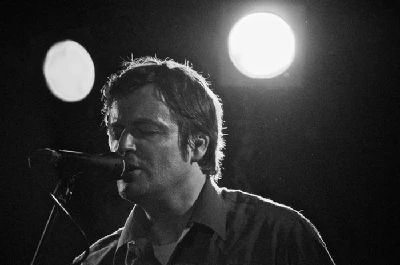
|
| Keith How enjoys Richmond Fontaine's literary Americana at a gig in Sheffield on their farewell tour |
| Luminaire, London, 22/5/2007 |
| Borderline, London, 28/9/2004 |
| Spitz, London, 25/5/2004 |
reviews |
|
We Used To Think The Freeway Sounded Like A River (2009) |
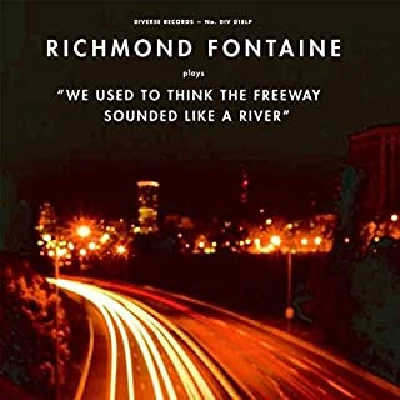
|
| Cinematic and atmospheric eighth studio album from Portland, Oregon-based group Richmond Fontaine, which, while often sadly bleak in its subject matter, is also emphatically life affirming |
| Thirteen Cities (2007) |
| Post To Wire (2004) |
| Winnemucca (2002) |
most viewed articles
current edition
Tossing Seed - InterviewWaterboys - Roundhouse, London, 1/6/2025
Last of the Lovely Days - Interview
Lemonheads - O2 Ritz, Manchester, 16/8/2025
Brian Wilson - 1942-2025
Cary Baker - Down on the Corner: Adventures in Busking and Street Music
Morrissey - Photoscapes
Robert Forster - Interview
Belouis Some - Video Vault
Motorcycle Boy - Interview
previous editions
Flip Side - Raging PagesStereogram Revue - Voodoo Rooms, Edinburgh, 2/12.2015
Bob Mould - Brooklyn Bowl, O2 Academy, London, 11/2/2016
John Clarkson - A Life in Music
Bill Hicks - Profile
Ain't That Always The Way - Alan Horne After The Sound of Young Scotland 2
That Petrol Emotion - That Petrol Emotion, Town and Country Club, London, 1988
School - Interview
Miscellaneous - Minehead, Somerset, 8/5/2009...10/5/2009
Dave Greenfield - 1949-2020
most viewed reviews
current edition
Liarbilitys - VandalheartKirk Adams and Ed Woltil - Eat The Sunshine, Drink The Starshine
Wolf Alice - The Clearing
Big Flame - Peel Sessions 84-86
Silver Biplanes - Coming Up For Air
Bruce Dickinson - More Balls to Picasso
Good Charlotte - Motel du Cap
Suzie Ungerleider - Among The Evergreens
Phew, Erika Kobayashi,, Dieter Moebius - Radium Girls
Rupert Wates - Father to the Man
related articles |
|
Delines: Interview (2014 |
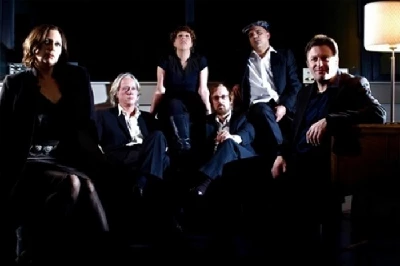
|
| Richmond Fontaine frontman and singer-songwriter Willy Vlautin talks to John Clarkson about his new band the Delines, their debut album 'Colfax', and 'The Free', his recently published fourth novel |
Pennyblackmusic Regular Contributors
Adrian Janes
Amanda J. Window
Andrew Twambley
Anthony Dhanendran
Benjamin Howarth
Cila Warncke
Daniel Cressey
Darren Aston
Dastardly
Dave Goodwin
Denzil Watson
Dominic B. Simpson
Eoghan Lyng
Fiona Hutchings
Harry Sherriff
Helen Tipping
Jamie Rowland
John Clarkson
Julie Cruickshank
Kimberly Bright
Lisa Torem
Maarten Schiethart